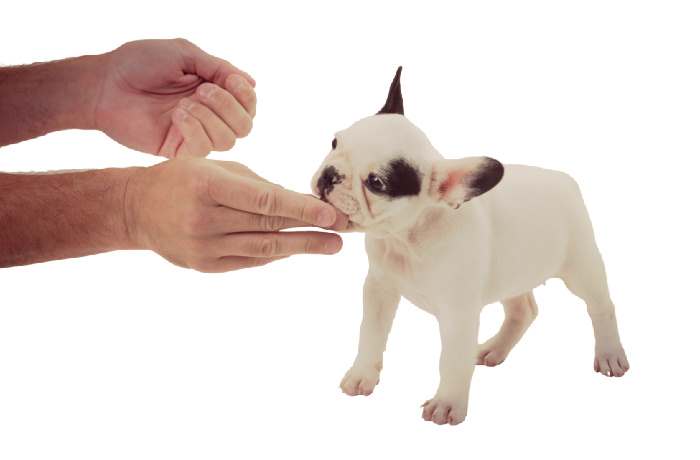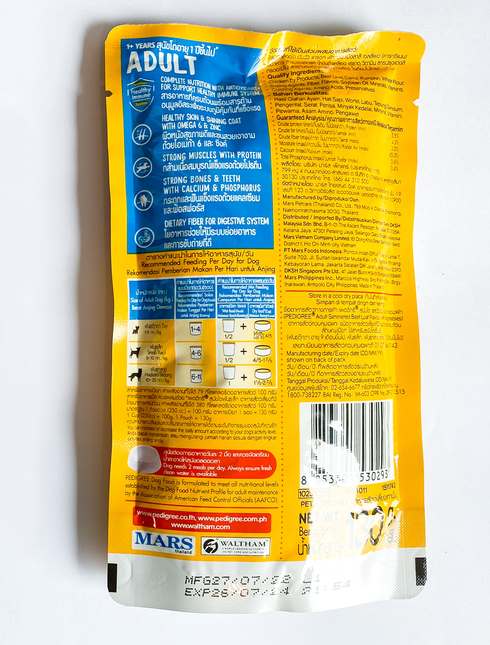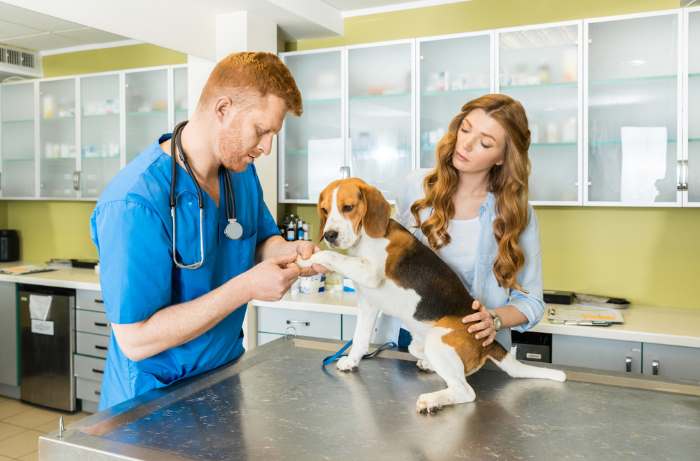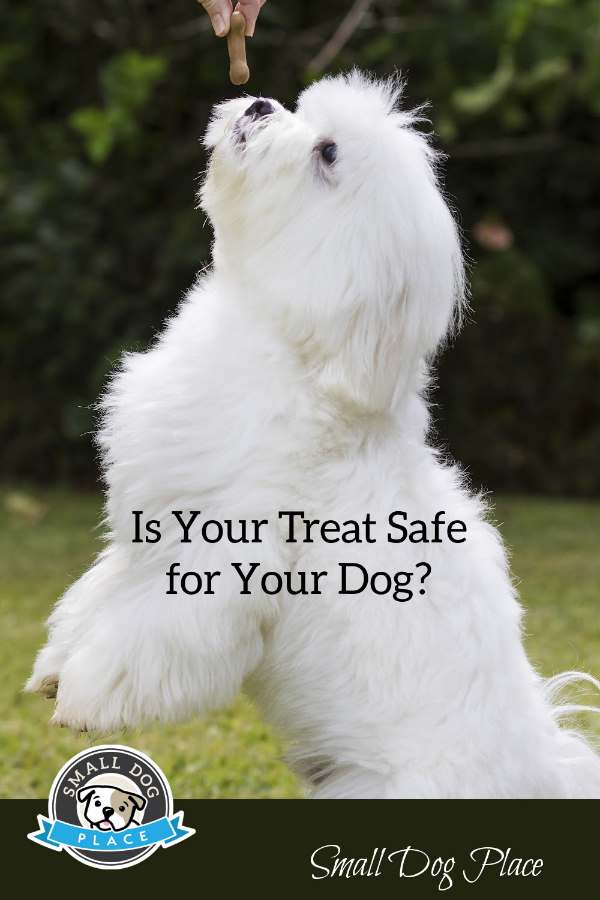- Small Dog Place Home
- Feeding
- Is Your Treat Safe for Your Dog?
Is Your Treat Safe for Your Dog? Learn How to Find Out
Is Your Treat Safe for Your Dog? by Glenn Anderson
We would do anything to provide the most excellent care for our dogs. As a token of our affection, we lavish our pets with only the finest amenities, including gourmet food, the latest and most excellent toys, and plenty of tasty snacks.
Given the market's wide range of treats, it can take time to identify those suitable for consumption. You can give your dog the healthiest and safest treat possible by knowing where it came from and what's in it.

5 Methods to Find Out if It's a Safe Treat for Your Dog
If you do your homework, you can give your dog the healthiest treat possible. We'll talk about the things you should watch out for and whether or not certain sweets are safe.
1. To Find Out if a Treat is Safe for Your Dog, Check Ingredients Table

Consider reading the labels on the dog food and treats you find the next time you're at the pet store. You may be surprised by the number of filler substances and preservatives that comprise the bulk of the list.
Your dog could suffer serious health consequences if you feed him treats made with artificial flavors, colors, and preservatives. Some treat manufacturers utilize this component to prolong the shelf life of their goods, despite the claims that they are not harmful to the consumer's health.
Too much processed human food should also never be given to dogs as treats, no matter what. For example, you’re having a movie night at your home, and cooked caramel popcorn, and your dog is around, make sure they don’t get it.
This is why it's important always to check the label to see whether there are any animal by-products or chemical preservatives before buying a product. You should also look at the list of ingredients to see whether your dog is allergic to anything.
Now you may rest easy knowing that high-quality pet food shares many of the same characteristics as human food. Excellent ingredients are unadulterated, unrefined, and subject to as little processing as possible.
2. Consult With a Vet

Veterinarians are the go-to guys for everything related to our pets' health and well-being, and we can trust their guidance and suggestions.
Although many dog owners believe they are well-versed in dog treats, even the most seasoned pet owners may be unaware of the possible dangers of giving their dogs specific treats.
Veterinarians are qualified to assess the unique health requirements of each pet and advise owners on the best treats for their dogs. Additionally, a vet can clear any confusion regarding healthy or unhealthy treats and foods.
Your dog's diet should include treats, and a vet can advise you on the best options. If you're thinking about giving your dog a new treat or supplement, it's wise to stick to prudence and get advice from a vet first.
A vet can also give you the best possible information on dog food after giving your dog a full checkup and going over their reports and such.
3. Calorie Content of Treats
When buying treats for your dog, it's vital to pay attention to how many calories they contain. Different treats can have varying calorie counts since they use various ingredients.
You should always verify the calorie count of dog treats to be sure they are healthy for your pet. Dogs can develop significant health issues like diabetes, arthritis, and heart disease if they are allowed to put on too much weight due to treats.
Certain sweets may have a lot of fat and sugar depending on their ingredients, while others could have a lot less. Treats should not replace your dog's everyday meals and should be a special reward.
Look at the treat's serving size when you want to know how many calories it has. You can find the percentage of calories in a single piece by looking at the serving size.
Knowing how much of the reward is appropriate for your dog to eat depends on this information. A smaller serving size can be preferable if the treat you're giving your dog is heavy in calories.
4. Is Your Treat Safe for Your Dog? Evaluate the Size of the Treat

Your dog's security is directly related to the number of treats you give him. You should ensure the treat won't choke or upset your dog's stomach.
If you care about your dog's health and well-being, you should provide treats of the correct size. Your dog's demeanor may also change depending on the treats you give him.
Your dog may only be able to enjoy the treat to its full potential if it's smaller for him. Ensure the treat is the proper size for your dog to avoid undesirable habits like begging or whining.
Remember your dog's age and size when deciding how big of a treat to give your dog. Smaller treats are better for pups, and larger ones can be introduced as they age.
5. Consider the Age of Your Dog when Deciding Whether Your Treat is Safe for Your Dog

When deciding if a treat is appropriate for your dog, it's crucial to consider how old they are. Depending on the dog's age, a different type of treat may be more suitable.
The nutritional requirements of your pet may change as they age. Dogs' nutritional needs and metabolic rates shift with age. Older dogs might also find chewing certain treats to be hard. So by taking into account your dog's age, you can take better care of your senior dog.
Food and treats for puppies have different nutritional needs than adult dogs. Compared to adult dogs, puppies have more important dietary requirements for protein and fat.
Senior dogs may benefit from additional vitamin and mineral supplements as they age. In addition, puppies and older dogs are more likely to experience stomach disorders, so it's crucial to pick safe treats to ingest.
Final Words
To determine whether a particular treat is suitable for your dog, you must first know what to look for. Researching and understanding as much as you can about the treats available will help you make a better-informed decision for your dog.
Furthermore, consulting with your vet can assist you in choosing treats that are safe for your dog. Researching whether a treat is safe for your dog will help maintain your pet's health.
Is Your Treat Safe for Your Dog?
Pin for Future Reference

Is Your Treat Safe for Your Dog?
Author Bio
Glenn Anderson has been a freelance writer for years. A pet enthusiast and a flag-bearer of organic eating, a fitness freak, and obsessed with all things food, plants, and animals. He also loves writing and discussing things that make him happy.
About Janice (author and voice behind this site)
Having lived with dogs and cats most of her life, Janice served as a veterinary technician for ten years in Maryland and twelve years as a Shih Tzu dog breeder in Ohio.
Her education includes undergraduate degrees in Psychology with a minor in biology, Early Childhood Education, and Nursing, and a master's in Mental Health Counseling.
She is a lifelong learner, a dog lover, and passionate about the welfare of animals. Her favorite breed for over 50 years has been the Shih Tzu, but she has also lived with Poodles, Maltese, Yorkshire Terriers, Beagles, English Bulldogs, Carin Terriers, and a Cocker Spaniel.
When not writing, reading, and researching dog-related topics, she likes to spend time with her eight Shih Tzu dogs, husband, and family, as well as knitting and crocheting. She is also the voice behind Miracle Shih Tzu and Smart-Knit-Crocheting
Does This Article Deserve Your Thumbs Up?
We always appreciate your support and encouragement. Your thumbs up means so much to us. Please like this article.
If you find this page or any page on Small Dog Place Helpful, or useful in anyway, I'd love it if you would click the small heart found on the bottom right of each page.
You can also share or bookmark this page -- just click on the:
Your second block of text...

Free Monthly Newsletter
Sign Up for Our Free Newsletter and get our Free Gift to You.
my E-book, The Top 10 Mistakes People Make When Choosing a Dog (and how to avoid them)

